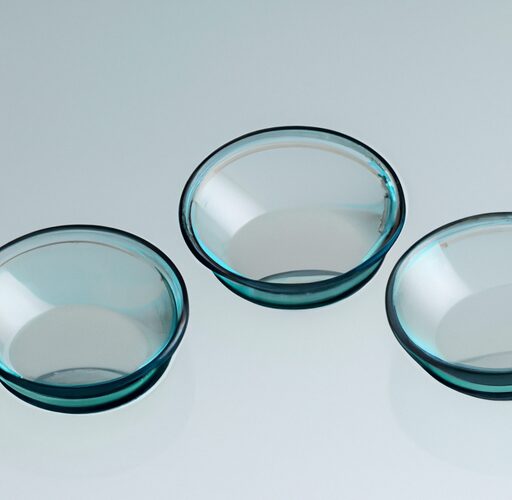Contact Lenses and Menopause: What You Need to Know
Introduction
As women age, they experience hormonal changes that affect various aspects of their lives. Menopause marks the end of the reproductive cycle in women, and it comes with several physical and emotional changes. In addition to hot flashes and mood swings, menopause also affects eye health and vision. If you wear contact lenses, it’s essential to understand how menopause affects your eyes and vision.
Changes to Your Eyes During Menopause
During menopause, the body produces less estrogen, a hormone that affects bone density, blood vessels, and other body functions. Estrogen also plays a role in keeping your eyes healthy and lubricated. As estrogen levels decline, women may experience dry eye syndrome, a condition that causes eye irritation, redness, and a sensation of grittiness. Dry eyes can make it difficult to wear contact lenses comfortably, as the lenses can stick to the cornea and cause discomfort.
Tips for Managing Contact Lenses During Menopause
If you wear contact lenses and are experiencing dry eye symptoms due to menopause, there are several things you can do to manage your lenses more comfortably.
Use Lubricating Eye Drops
To alleviate dry eye symptoms, use artificial tears or lubricating eye drops to moisturize your eyes. These drops can provide immediate relief and prevent your contact lenses from sticking to your cornea. Consult with your eye doctor to find the best eye drops for your specific needs.
Reduce Contact Lens Wear Time
If your eyes feel dry or uncomfortable, try reducing the amount of time you wear your lenses each day. You can also switch to glasses for some activities that don’t require clear vision, such as reading or watching TV.
Opt for Daily Disposable Lenses
If you’re experiencing severe dry eye symptoms, you may want to switch to daily disposable lenses. These lenses are designed to be worn once and discarded, which reduces the risk of bacterial buildup and infection. Daily disposables are also more convenient and require less maintenance than reusable lenses.
Keep Your Lenses and Eyes Clean
Regardless of which type of contact lenses you wear, it’s essential to keep them and your eyes clean to prevent infection and irritation. Always wash your hands before handling your lenses, and follow your eye doctor’s instructions for cleaning and storing your lenses.
Conclusion
Menopause can be a challenging time for women, but with the right approach, you can manage your symptoms and continue to enjoy clear vision with contact lenses. Be sure to discuss any concerns you have with your eye doctor, who can recommend the best course of action to keep your eyes healthy and comfortable. Remember that menopause is a natural part of life, and taking care of yourself is essential to maintaining good eye health.

